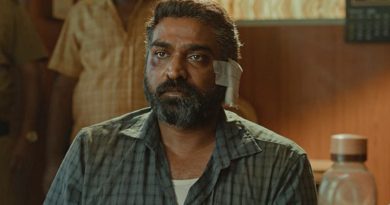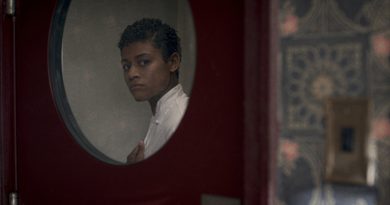Capsule Review: The Zone of Interest (2023) – Jonathan Glazer’s Best Film To Date Since Sexy Beast
The rhetorical question “How can you sleep at night?” is perfectly described in Jonathan Glazer’s Holocaust drama, The Zone of Interest. We see the daily routines of Rudolf Höss (Christian Friedel), his wife Hedwig (Sandra Hüller) and their children living in an idyllic home, complete with a well-manicured garden and their servants handling the chores. Hedwig would spend her leisure time gossiping over coffee with other wives or tending her garden. In the meantime, her husband would take his kids fishing in the river and read them bedtime stories at night.
All this certainly defines a happy family. The twist here is that Höss serves as a commandant of the Auschwitz concentration camp. His house and the garden are located just beside the camp, where we constantly hear the distant sound of gunshots as well as men, women and children screaming in agony. And yet, the Höss family seems to be oblivious to the genocide that takes place behind the walls of their comfort zone.
Glazer, who also wrote his screenplay loosely based on Martin Amis’s 2014 novel of the same name, eschews the usual expectations of how we usually see a Holocaust drama. There are no visible scenes of torture and war violence. Yes, we don’t get to see any of them other than Glazer emphasises the use of sound design to evoke a sense of dread and unease. The kind of aural experience that he wants us to imagine what’s going on to the poor prisoners inside the concentration camp.
And he manages to do so effectively by depicting the horror of the Holocaust through the power of suggestion. It’s eerie and disturbing to see the Höss family live their life like it’s any other normal day. Glazer and cinematographer Łukasz Żal made sure of that using deliberate choices of static shots and long takes to showcase the mundane lives of this particular family day and night. At one point, there’s a stretch, where the camera slowly tracks Hedwig happily and even proudly showing her visiting mother (Imogen Kogge) around the garden. As she gives her the tour, we also see the high walls that separate the concentration camp and the garden — a stark contrast between the obscured horror and the joy of the mother-daughter spending their time together.
Łukasz Żal’s brilliant use of a thermal imaging camera equally deserves praise for the nighttime shots of a young Polish girl risking her life leaving some apples and pears in the trenches for the prisoners.
The Zone of Interest also benefits from Mica Levi’s unconventional score that is at times cold and foreboding or increasingly distorted, complete with the bone-chilling use of actual human screams. The two main stars, Christian Friedel and notably, Sandra Hüller in a scene-stealing performance as the steadfast housewife Hedwig are worth mentioning here. Hüller certainly has a banner year in 2023, which also includes the Cannes-winning Anatomy of a Fall.
The Zone of Interest is easily Glazer’s best film to date since his impressive debut in Sexy Beast and certainly a cut above his last two polarising and pretentious Birth (2004) and Under the Skin (2013).





